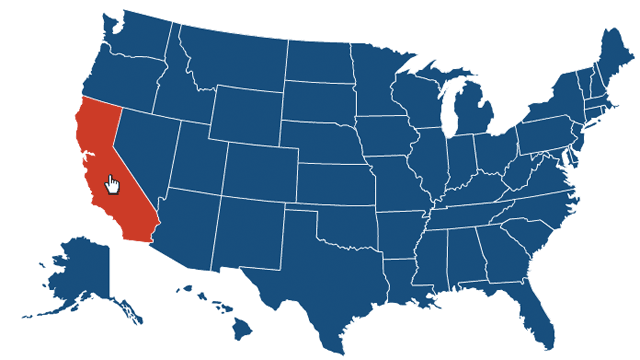We’ve gathered sources here connecting you to information on the candidates in your state, what they stand for and who is funding their campaigns. We’ve also included links to help you cast your ballot on Election Day — as well as other helpful information.
When and where can I vote and what do I need to bring?
Election Protection provides information on where you can vote, the time polls are open and the type of identification you need to bring, as well as details on early and absentee voting. Click on the map below to get started or call Election Protection’s toll-free, nonpartisan Election Day hotline (1-866-OUR-VOTE).
What elections are being held in my state and who are the candidates?
Vote411.org, a project of the League of Women Voters, asks you to enter your address so they can provide you with appropriate local information on the candidates, issues and upcoming local debates. If you enter your address, then click on the green “get personalized information” bar, and then the green “show my races” button. This will not only show you the candidates, but allow you to compare two candidates on their qualifications, priorities and other information.
Where do the candidates stand on the issues?
You will get some sense of this from Vote411, but Vote Smart’s Political Galaxy may have more specific information and covers a wider variety of issues. Search by entering your zip code or a candidate’s name. There’s also Project Vote Smart’s Vote Easy tool, which allows you to find out which candidate’s views are most closely aligned with your own. You can also check out Ballotpedia for information by clicking on your state.
Who is funding the candidates?
OpenSecrets.org offers head-to-head campaign finance comparisons for candidates in every US House and Senate race, including the total amount raised, the top industries and interest groups supporting them and where the money comes from geographically. You can search by state or by candidate. The Sunlight Foundation’s Influence Explorer also allows you to explore the businesses, organizations, lobbying groups and political groups funding the candidates.
Is the candidate I’m considering telling the truth?
Politifact checks politicians statements for accuracy. Click through the alphabetical listing of politicians (and organizations) to find statements they’ve made, complete with a Truth-o-Meter reading ranging from true to pants on fire.
What if someone tries to harass or intimidate me at the polls?
Call Election Protection’s toll-free, nonpartisan Election Day hotline with any issues (1-866-OUR-VOTE).
Should I vote with my heart or my brain?
We talked with moral psychologist Jonathan Haidt in a BillMoyers.com interview about how to make voting decisions. We began by asking him if it’s best to vote for the candidate who represents a person’s views or for the one with the best chance of winning. See what he had to say »



